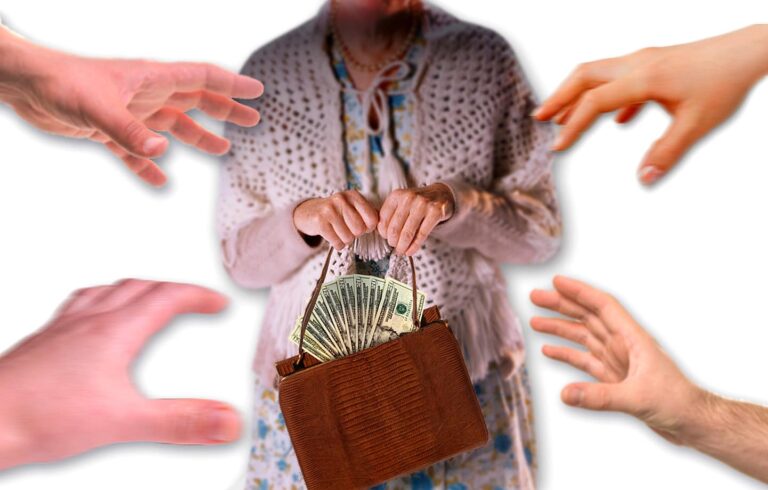Abuse: The Warning Signs
There are a number of different ways elder abuse can occur. Some of the signs that this abuse is occurring include:
Withdrawal from activities, lack of alertness or unusual behavior Physical injuries such as blisters, burns or pressure marks that do not have an explanation to fit the pattern Unexplained sexually transmitted diseases or bruising around the breast or genital areas Poor hygiene, weight loss or the need for medical care A change in wills, trusts or financial accounts
If you have concerns about any of these types of abuse, ask questions and keep on top of the situation.
Who is at Risk?
The risk factors of elder abuse have a wide range, therefore it is possible that anyone can be affected by this. There are some elders, however, who may be more likely to suffer abuse. These elders include those that have a lack of support networks, who suffer from a mental impairment and who have caretakers that have personal problems such as finances or alcohol abuse.
Could it be Self-Neglect?
Abuse may not be occurring from the outside, but elders who are no longer able to take care of themselves might be prime targets for abusers. Self-neglect includes elders who have a lack of basic needs, refuse medications, are hoarding, have poor hygiene and prefer isolation.
What Are the Laws?
There is currently no federal law that protects elders from abuse. There are laws in each state that do deal with the issues of exploitation, neglect and abuse. From state to state, the laws vary by who is protected-from those that live alone or with family to those who are residing in long term care facilities. Many states have clear cut laws on criminal penalties for elder abuse. Laws outside of the realm of elder abuse may also apply, including rape, assault, fraud or domestic violence.
If you see elder abuse happening, call local police or adult protective services immediately. When you need to find information, call the U.S. Administration on Aging’s Eldercare Locator at (800) 677-1116.
What Should You Expect After Reporting?
You will first be asked to give your story and any information you have on the elder suspected of being abused. Most states take anonymous reports, but some may ask for your information for follow up questions.
Once an investigation begins, it will be Adult protective services (APS) investigating the initial reports. If they find abuse, APS will work with a number of agencies to ensure the safety of the victim. Law enforcement will get involved when the situation involves a criminal act. If the elder is not mentally capable of making their own decisions, a court may appoint a conservator or guardian.
Elder Financial Abuse: What It Is and How to Stop It
Elder financial abuse – it’s an issue that ‘s been around as long as the elderly have had property and money. Normally, an elderly person is sixty-five years or older, and is also known as a senior citizen. The crime is a term for the misuse of the funds acquired by them. Along with funds, exploitation of a person’s property and resources also can be considered abuse.
Even though the crime has been around for several years, it had been only given nationwide attention in recent times. In 2011, famous Hollywood actor Mickey Rooney sued a stepson for alleged abuse. Public awareness grew after the revelation of his case.
A study carried out by a primary international insurance provider said that close to three billion dollars a year is lost thanks to the crime. This is due to the many various tactics utilized by the bad guys to steal from senior citizens. Recognizing the abuse is fairly easy. However, a number of cases happen within families. And unless other parties get involved, instances wouldn’t see the light of day.
What is regarded as elder financial abuse and who is guilty of it?
The term is actually a blanket term for a wide range of criminal activities. These crimes involve the use of trickery, deception, and coercion to access the funds, resources, and properties of a senior citizen. People that are typically found guilty are caregivers, fraudsters, and sorry to say, family members.
Examples of exploitation committed by these folks include:
- Misuse of personal checks, credit cards, and other financial accounts
-
It’s usually performed by forging the signature of an elderly person.
-
Stealing of cash, pension checks, and other prized possessions.
-
Identity theft
-
Senile individuals often become a victim of this kind of attack. Devious people take advantage of the fact that the elderly are confined to homes or nursing facilities. Thankfully, bank fraud lawyers take the necessary actions to fight such problems
You cannot assume all sinister acts are done by singular individuals, however. You can find cases when even healthcare is used as a tool to extort income from the elderly. These companies take advantage of an elderly person’s fragile state of mind. Healthcare provider and other scams include:
- Special “prizes” for senior citizens that must be purchased.
-
Charging excessively for healthcare that isn’t provided.
Elder financial abuse takes place simply because of a senior citizen’s lagging mental capacity, especially those that are senile. Isolation also plays a role in the abuse. Typically, victims are widows or widowers. Statistically, women are especially vulnerable to abuse. Research has shown that women live longer than men. The elderly women that live longer than their companions typically belong to a generation where the male was the one who handled the finances.
When you know somebody who may be a victim of this kind of abuse, it would be best to tell the authorities. In instances where you personally know the family and are concerned about being called an intruder in family issues, you can find anonymous hotlines you could call.

